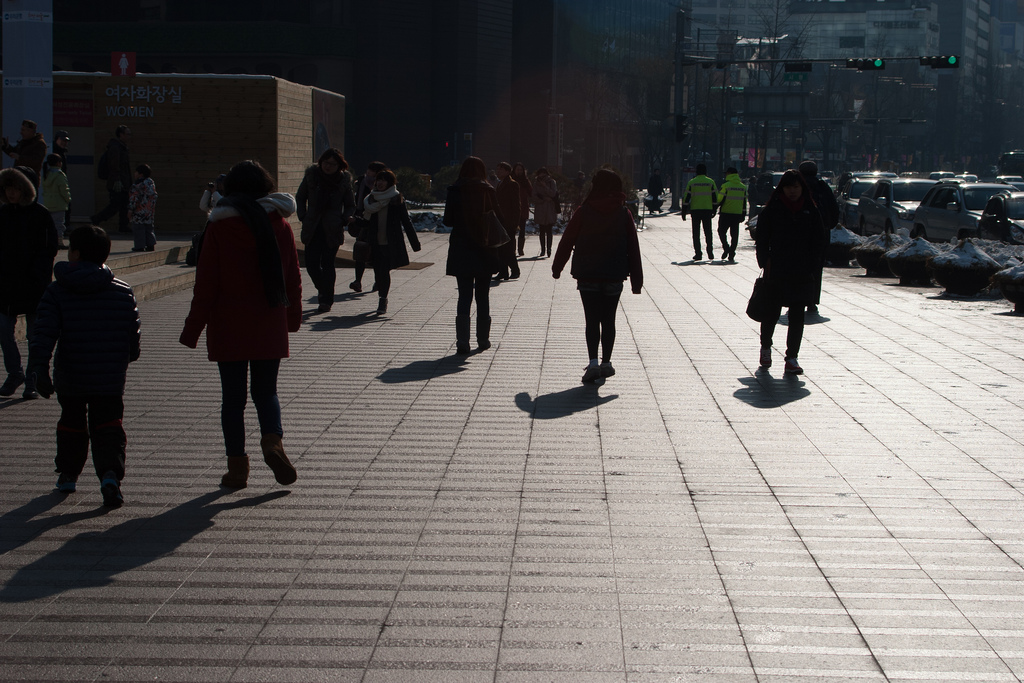The Peninsula
South Korea’s Mental Health Crisis
Published December 12, 2018
Category: South Korea

By Kylan Toohey
Last October, a 21-year-old part-time worker at a PC cafe in Seoul was stabbed to death by a 29-year-old customer, identified as Kim Sungsoo, who had been at the facility earlier that same day. Both the brutality of the murder and the perpetrator’s apparent lack of motive placed the crime at the forefront of South Korean news, and many citizens expressed outrage over the authorities’ handling of the situation. Kim has come forward and claimed that he suffers from an “unwell” mind and body, presenting a record of his antidepressant usage as evidence. Under Article 10 of South Korea’s Criminal Law, it is considered unlawful to punish a person who is “unable to make discriminations or control [his] will” due to the presence of a mental disorder. The prospect of Kim receiving a lighter sentence due to a psychological diagnosis led over one million citizens to petition the Blue House for a strong punishment. Although the court has since ruled against Kim’s claim of being unwell in mind and body as a reason for his crime, a formal sentencing has yet to emerge from the trial.
The strong social response was partly a reaction to precedent. Mental health issues and other disorders like alcoholism had been cited in past cases where perpetrators of heinous crimes received lesser sentences on account of their condition. Prominent examples include the 2016 murder at Gangnam station, where a male suspect murdered a woman he had never met before, and the 2008 case of a 54-year-old man who kidnapped and raped a 12-year-old girl. In both instances, the rulings were met with mass dissent, mirroring the current calls for more “fair” punishment for those who claim to be suffering mental and psychological illnesses.
With the country’s understanding of mental health in need of further development, it is detrimental for the conversation on this important issue to continue surfacing in the context of crime.
South Korea, despite its status as a developed nation under the OECD, ranks poorly on mental health statistics among similar countries of its caliber. According to an OECD report released in 2014, South Korea ranked first in suicide rates among developed nations, with 29 in every 100,000 people committing suicide. Of these suicides, around 60 percent are said to have resulted from depression and other mood disorders. South Korean government statistics released in 2017 stated that at least 1 in 4 Koreans experience a mental disorder at least once in their life, but only 1 in 10 of these pursue professional help for their symptoms.
For a fully developed nation like South Korea, these numbers are incredibly dismal. Compare with the United States, for example. In the United States, only 14.3 in every 100,000 people commit suicide per year. This makes suicide only the 10th leading cause of death in the country, whereas suicide stands as the 4th leading cause of death in South Korea, and the number one cause of death for youths aged 9 to 24.
Existing cultural stigmas make it difficult for South Koreans of any age to seek proper treatment for symptoms of mental illness. The association of mental illness with violent crime, as seen in the social response to PC Room murder case, is only part of the problem. South Korean society is largely defined by its high competitiveness, high pressure, and high stakes when it comes to finding and building a “successful” life. From academic pressure to get into one of the top universities in the country to professional pressure to land a job at one of the major conglomerates, South Koreans are certainly not short on emotional stressors.
South Korean societal norms make it difficult for someone suffering from mental and emotional stress to come forward and ask for help for fear of looking “weak” in the face of all of this pressure. Additionally, coming forward and admitting mental illness opens you, and even your family, up to the scrutiny of society, and because of the existing negative stigmas around mental illness, this places a “permanent taint” on your public image that is difficult to erase, which can affect personal and professional opportunity prospects in the future.
The case of Kim Sung Soo and the PC Room murder, and the extreme backlash that it has sparked, serves as an extreme example of what can happen if mental illness goes unchecked. Increased education and awareness about the realities of mental illness can not only help those who may be suffering from its symptoms, but also prevent those who may want to take advantage of it, like the many who have signed the Blue House petition are worried about, from doing so.
Kylan Toohey is an intern at the Korea Economic Institute of America and a graduate student at George Washington University in Asian Studies. The views expressed here are the author’s alone.
Photo from 87ab’s photostream on flickr Creative Commons.
